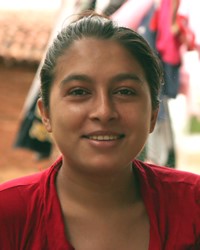In their homeland of India, they were originally called Dom, meaning man. Later, Dom developed into Rom. Today, they prefer to be called Romani in Europe; but in the Middle East and North Africa, many still refer to themselves as 'Dom' or 'Domi'. Here, the term 'Dom' will be used for this people group found in the Middle East, and 'Romani' will be used as a general, more recognizable designation for the larger people group. Romanis are divided into smaller groups such as the Calo Romani. The Calo Romanis are most likely to live in European countries like France.
Calo Romani lifestyles vary widely. There are those who maintain a peripatetic (nomadic) lifestyle. They offer their services as entertainers, musicians, or metal workers to other nomadic groups. Others can be described as semi-nomadic: they live in houses in or near a city part of the year, perhaps during the winter, but live in their tents the remainder of the year. The houses they live in are often nothing more than tin huts.
Romanis have a bad reputation for cheating people and stealing. This makes them unpopular with the French population. But the French love the lively flamenco music that Calo Romanis produce. Music festivals by Calo Romani musicians are popular in France.
Calo Romanis tend to adopt the dominant religion of their host country. In France, this means Roman Catholicism with a heavy dose of secularism. They consider religion a personal matter, and they are hesitant to talk about it with anyone. Superstition and "the good elements" of many religious systems make up the nature of their beliefs. Spiritism is dominant in their thinking as to why things happen in the world. They strongly fear evil spirits and curses. Dom fortunetellers offer to make clients a potion that will ward off curses.
There are very few known Christians among the Calo Romanis. One young man spoke about the isolation that a Calo Romani feels when he or she becomes a follower of Jesus. As a result of accepting the Christian faith, they may find themselves outcasts, separated from their own families, as well as from the predominantly Islamic environment in which they live.
In almost all of the countries they live in, their rudimentary command of the local language and limited use of written documents have contributed to their political powerlessness. Some who have settled are in transition, as they seek to become a part of the social systems around them. To fit in, they may abandon the traditional clothing, tattooing, dancing, and fortune telling that are part of the Romani lifestyle. They may even deny their ethnic identity.
Regardless of their efforts to assimilate into the mainstream society, the Calo Romanis rarely have official status or citizenship in their country of residence. Due to their poverty, they are often unable to pay hospital fees when children are born. In this case, no birth certificate is issued, so the possibility of securing citizenship is forfeited.
Pray for Calo Romani elders and family leaders to have the spiritual hunger it takes to seek and find Jesus Christ no matter how difficult it might be.
Pray that soon Calo Romani disciples will make more disciples.
Pray for the Holy Spirit to give them a better moral system.
Scripture Prayers for the Romani, Calo in France.
Middle East Resources
https://en.wikipedia.org/wiki/Romani_people_in_France
| Profile Source: Joshua Project |











